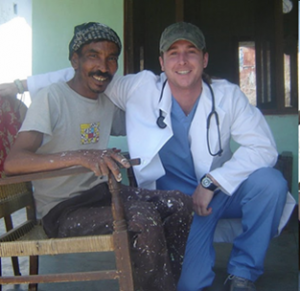What is Competency Based Education?
 Competency-based education (known as CBE) has been all the rage in medical education for nearly a decade. Competency in this realm has been described as the “habitual and judicious use of communication, knowledge, technical skills, clinical reasoning, emotions, values, and reflection in daily practice for the benefit of the individual and the community being served” (Epstein and Hundert, 2002). This and subsequent work on CBE emphasizes the operational nature of competencies, they are not static knowledge, memorization of facts, but rather the behaviors and nature of actions that are carried out while utilizing medical knowledge. Competency is both what you know and how you act when exercising that knowledge. Moreover, competencies have to be demonstrable and involve performing tasks that can be witnessed by evaluators and educators. CBE also incorporates a new paradigm for how to create medical education objectives. In the CBE model, competency objectives are based on the health needs of patients and communities, which then inform curriculum to impart the desired competencies, thus responding to medical education reform calls by organizations like Health Professionals for the 21st Century. This is very different than traditional medical education, where the health needs of society are not central motivators for what is taught.
Competency-based education (known as CBE) has been all the rage in medical education for nearly a decade. Competency in this realm has been described as the “habitual and judicious use of communication, knowledge, technical skills, clinical reasoning, emotions, values, and reflection in daily practice for the benefit of the individual and the community being served” (Epstein and Hundert, 2002). This and subsequent work on CBE emphasizes the operational nature of competencies, they are not static knowledge, memorization of facts, but rather the behaviors and nature of actions that are carried out while utilizing medical knowledge. Competency is both what you know and how you act when exercising that knowledge. Moreover, competencies have to be demonstrable and involve performing tasks that can be witnessed by evaluators and educators. CBE also incorporates a new paradigm for how to create medical education objectives. In the CBE model, competency objectives are based on the health needs of patients and communities, which then inform curriculum to impart the desired competencies, thus responding to medical education reform calls by organizations like Health Professionals for the 21st Century. This is very different than traditional medical education, where the health needs of society are not central motivators for what is taught.
CFHI Leading the Way
CFHI is leading the way in embracing competency-based education in the global health sphere. Our partners in Bolivia, lead by Dra. Cecilia Uribe, CFHI Medical Director in La Paz and Dr. Velasco, a model preceptor, are developing locally-relevant competency-based curriculum for CFHI participants. This local CBE will augment existing competency-based objectives in the areas of professionalism and Emotional Intelligence pioneered by CFHI. In the wider global health medical education community, there have been several recent attempts to develop competencies for health science students engaging in global health education. A useful set of competencies was issued by a Joint US/Canadian Committee on Global Health Core Competencies during 2008-2009.
Strong Partnerships Allow for Innovation
It is only through the strength of our partnerships and the dedication of our local Medical Directors and preceptors that CFHI is able to develop this novel CBE and empower communities to define locally-relevant competencies to share with visiting health science students. This effort evolved when Bolivian preceptors expressed a reluctance to evaluate CFHI participants in a rigorous manner, as the local physicians felt somewhat intimidated in critiquing US students. In conversations with the partners, I encouraged them to feel empowered to evaluate students and create their own tools for objectives and assessment. The partners were very glad for this ‘permission’ and empowerment. Competencies are means to this end and allow our international partners to define goals within their own programs and assess participants based on competencies that they create. Competencies are based on their unique community context as well as broader competencies needed to be a globally savvy health care practitioner. As a result, CFHI participants are being prepared to serve patients globally through learning from local experts and responding to the health needs of the community in a demonstrable competency-based fashion.
